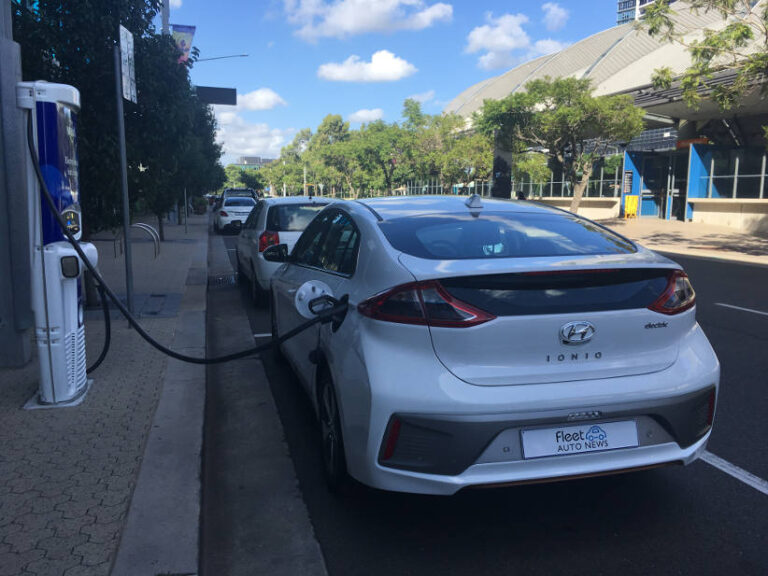Many local councils are ready to move on electric vehicles but needed further information and assistance to fully transition their fleets, according to a new ClimateWorks Australia report.
The report found Victorian local governments are ready to take up electric vehicles in their fleets, representing asignificant opportunity to accelerate Australia’s overall transition to electric vehicles. However, councils need help to access the tools and information they require to make the transition to electric fleets.
The report details the findings from the Electric Vehicle Ready Local Government Fleets project undertaken by ClimateWorks Australia, in partnership with the Electric Vehicle Council and the Municipal Association of Victoria. The project engaged with more than 100 individuals from 43 local governments across Victoria.
ClimateWorks Australia project officer, Claire Connell said the project found many councils are considering electric vehicles to help meet their emissions reduction targets and to showcase environmental leadership to their communities.
“While councils are willing to purchase or lease three or four electric vehicles, few are currently planning to fully transition their fleets,” she said.
“The main barriers to electric vehicle uptake were the capital costs associated with purchasing electric vehicles and uncertainty around the costs of charging infrastructure.
“Through the project we provided a total cost of ownership comparison for current petrol or diesel fleet vehicles and electric vehicles on the market. This showed that in some circumstances the electric vehicles options have a similar or lower total cost of ownership than councils’ current petrol or diesel vehicles.
“Similarly, we were able to provide councils with information on the range of fleet charging options, includinghow to select the best site for their charging station to reduce electrical and construction costs.”
Ms Connell urged councils to get involved in a new national capacity building program, Charge Together Fleetsthat provides information, collaborative procurement options and networking opportunities to help local government and other organisations make the successful transition to electric vehicle fleets. The program is being run by the Electric Vehicle Council and Evenergi, with support from the Australian Renewable Energy Agency and will incorporate the lessons learned through the ClimateWorks project.
Ms Connell said the transition of local government fleets to electric vehicles has the opportunity to increase broader electric vehicle uptake in Australia.
“Government fleets have significant purchasing power that can help normalise the technology and with a shorterturn-over time can also help to supply the second-hand vehicle market.”
Electric Vehicle Council chief executive Behyad Jafari said: “Local governments are at the heart of every community and the actions they take really matter – not just in terms of impact, but also influence.”
“Electric vehicles are now at a point where their cost and convenience adds up to efficiency. The main thing we need to change is perceptions. So we need to be doing everything we can to support local government to make the switch and show their communities that zero emission vehicles are a viable option,” he said.
The project was funded by the Victorian Government Department of Environment, Land, Water and Planning as part of the Victorian Climate Change Innovation grants program.
For a copy of the Electric Vehicle Ready Local Government Fleets report go to:
https://www.climateworksaustralia.org/transport.
If you are a fleet or sustainability manager who is interested in joining the Charge Together Fleets program you can do so at: https://www.chargetogether.com/.







